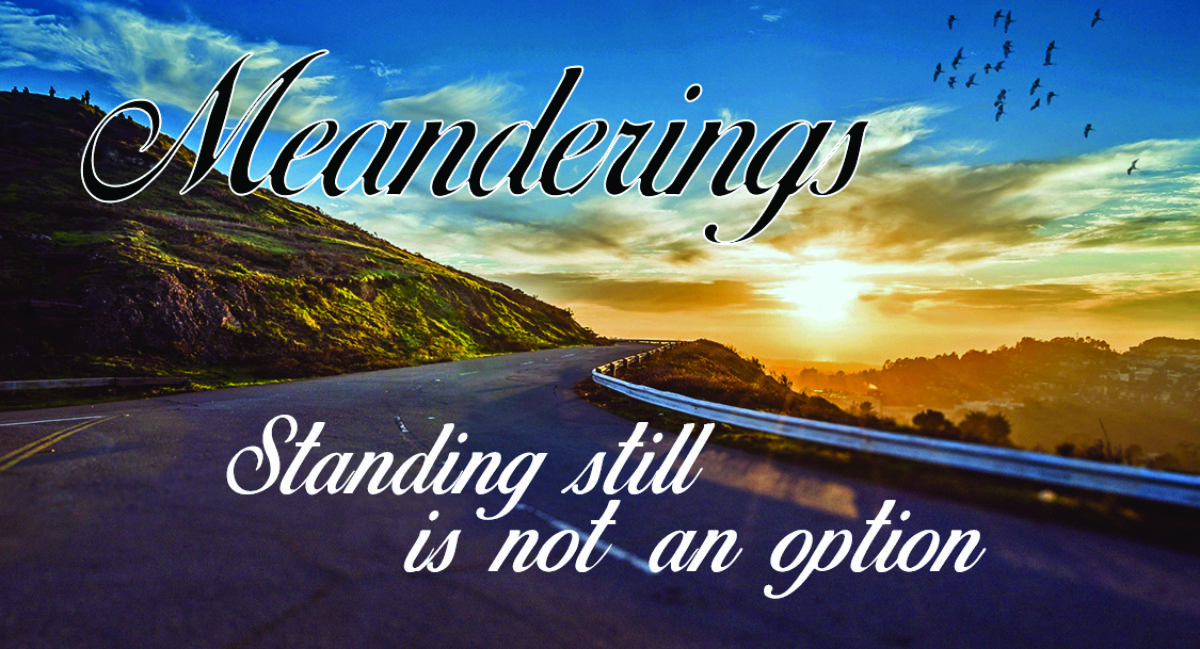Six to twenty years plus. This sounds like a prison sentence for a very serious crime. It is, although no crime has been committed. Yet that is the sentence handed down to every prospective caregiver of a loved one diagnosed with Alzheimer disease.
I heard it. It is a terrible verdict but unlike others this one is indisputable. There is no avenue for appeal.
My Bert Has Alzheimer’s: Caregiving is Living for Two charts ten years into that sentence. I have not marked off the years. There is no lumberman’s tally of the hours, days, or months. That is futile, but on the publication of this memoir it suddenly dawned on me that I may be only at the half way mark of that cruel and unusual punishment.
There is another part to this sentence besides its length. It should also include ‘at hard labour.’ Being a caregiver to a loved one with dementia is the definition of hard labour. One chapter with the heading Caregiver Job Description is a testament to that fact. Yet with all its details and list of requirements it is still only a glimpse into the convoluted life of a caregiver.
It is a chapter that resonates with readers whether they are caregivers or not. Caregivers of all stripes will remark on how true it is and add their own similar stories and experiences, while others will say: “I don’t know how you do it.”
Another unique facet of this sentence is that the diagnosis is for at least two people. The disease is for one but the following life of dealing with the manifestations and trajectory of the disease is for both parties. In fact a diagnosis of Alzheimer’s may be more devastating to the caregiver than to the patient.
Gasp! How can you say that?
It is easy for me to arrive at that conclusion. I am living it. My Bert is content. He has no idea what stress is now. His blood pressure readings are fantastic. In fact I know that almost everyone with this disease at this stage, has a fantastic reading unless there is an underlying problem that raises blood pressure.
Whenever my Bert has a reading I will tell him that he has the blood pressure of a teenager, and he, being the character he is, will respond saying: “Of course, I’m a teenager” or: “I’m only 19!” At least that’s what he used to say. Now he smiles and nods.
So as the caregiver I take delight in his contentment though I rail at the narrowness of his existence. But that is my worry, not his. There’s always a smile when he sees me whether he knows our relationship or not. Perhaps he has forgotten my name but he has not forgotten ME.
At times when I feel as if I am swimming in a sea of despair I also know I feel the despair because I am alive. I pause and breathe. I breathe and breathe in life.
The Meander: I hope I do not fall into the estimated 30% of caregivers who die before their loved one. The sentence continues but so does the adventure as our story continues and I have to live for two.

I took care of my husband’s mother for a little over 3 years when she came to live with us, no longer able to live on her own. She was loved dearly, but it was not easy. She was 91 and had mild dementia when she came to us, and was 94 when she died. That was the hardest work I have ever done in my life. Please do take good care of yourself, Paula.
It is very hard work. I do try to remember the caregivers’ mantra. Take care of yourself first: You can’t pour from an empty cup. That is hard to do but I am coping with the help of the care partners in my Bert’s home and my peer support group.
Thank you for taking the time to comment. You know what it is.
I was only a caregiver for about 4 years for my mother (not with Alzheimer’s) and that was hard enough, but to do it for so long and with such challenges, I really can’t imagine how stressful it is, while, of course, loving that person and wanting the best for them at the same time.
Then you know! You are another of the wayfarers along the difficult journey. Anyone caring for a loved one, no matter the reason, will relate to our story.
Yes, we want the best. What a pity it is so hard to come by.
Breathe, Paula, breathe. The cruelty, the hope, the despair, the love.
Because of your generous heart you are helping me to breathe right now. Thank you.
Caring for a loved one with dementia is certainly a long and difficult sentence. People who can manage it with the grace that you do, Paula, deserve to be honored and thanked by all of us. It’s remarkable how humans can rise and accomplish feats of caring that most of us never have to suffer. You are an inspiration.
Sometimes we need to be challenged to find out what we are capable of doing. I am just doing what I know my Bert would do for me. Your words are uplifting. Thank you so much.